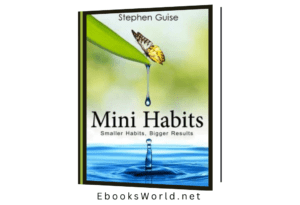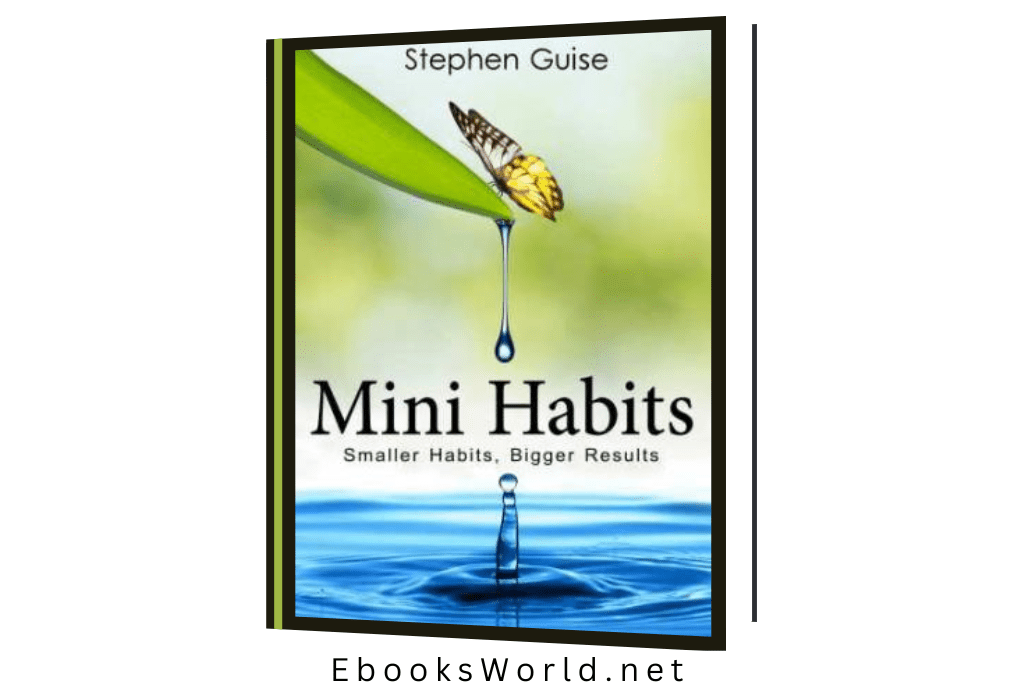Mini Habits: Smaller Habits, Bigger Results

“Mini Habits: Smaller Habits, Bigger Results” is a self-help book written by Stephen Guise. Published in 2013, the book introduces the concept of mini habits, a strategy aimed at making positive behavior changes through the implementation of tiny, manageable habits. The central idea is that starting with small, consistent actions can lead to more significant and lasting results over time.
Key Concepts:
1. Mini Habits Defined: Guise defines a mini habit as a very small positive behavior that you force yourself to do every day; it is so small that it requires little motivation to accomplish. The idea is to make the habit so easy that it becomes nearly impossible to fail.
2. Overcoming Perfectionism: The author addresses the issue of perfectionism, emphasizing that setting big, ambitious goals often leads to procrastination and burnout. Mini habits offer a way to bypass the perfectionist mindset by focusing on the smallest, most achievable actions.
3. The Power of Consistency: Guise argues that consistency is more important than intensity when it comes to building habits. By committing to a small, daily action, individuals can establish a routine that is easier to maintain over the long term.
4. Behavioral Momentum: The book introduces the concept of behavioral momentum, emphasizing that completing a small task can create a sense of accomplishment and motivation to tackle more. This positive momentum builds over time, leading to increased productivity and habit adherence.
5. Neurological Impact: Guise discusses the neurological impact of mini habits, explaining how the brain can be tricked into forming new neural pathways through the repetition of small actions. Over time, these pathways strengthen, making it easier to sustain the habit.
6. Versatility of Mini Habits: Mini habits can be applied to various areas of life, including health, fitness, learning, and creativity. The author shares personal examples and success stories from readers who have applied the mini habits concept to achieve notable results in different aspects of their lives.
7. Cue, Routine, Reward: Guise aligns mini habits with the habit loop concept popularized by Charles Duhigg. He emphasizes the importance of a cue (trigger), a routine (habit), and a reward in establishing and maintaining habits. Mini habits simplify the routine, making it more manageable and sustainable.
8. Incremental Growth: The book encourages readers to focus on the cumulative effect of small actions over time. By embracing incremental growth, individuals can make progress without feeling overwhelmed, leading to more sustainable and lasting changes.
9. Flexibility and Adaptability: Guise promotes the idea that mini habits allow for flexibility and adaptability. On days when motivation is low or time is limited, the commitment to a mini habit remains feasible, preventing the complete abandonment of the habit.
10. Positive Mindset Shift: Adopting a mini habits approach encourages a positive mindset shift. Rather than seeing tasks as burdensome, individuals begin to view them as manageable and achievable, fostering a sense of empowerment and self-efficacy.
“Mini Habits” provides a practical and accessible approach to personal development by breaking down behavioral change into small, actionable steps. By focusing on the power of consistency and the cumulative impact of tiny habits, the book offers a refreshing perspective on achieving lasting results with minimal stress and resistance. It is a valuable resource for individuals looking to overcome procrastination, build positive habits, and make meaningful changes in their lives.







